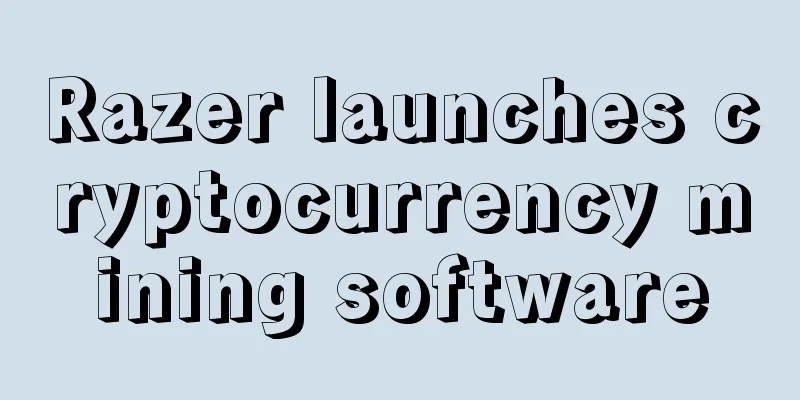Hu An praises HFIL. Huobi issues a large number of HTokens. Is it trying to become the central bank of DeFi?

|
Author: miaohash Editor: Wu said blockchain Huobi has just launched the Ethereum-based Filcoin token HFIL. This is not the first time that Huobi has converted a public chain token into an ERC-20 standard token. As early as February this year, Huobi launched HBTC. Before August, the minting volume of HBTC was only more than 700. However, since August, the DeFi market has exploded, and Huobi has successively minted a large number of H-Tokens series coins, including: HBTC, HBCH, HDOT and HFIL. Among them, HBTC alone has locked more than 6,000 BTC, worth 56 million US dollars. Juan Benet, the founder of Filecoin, also praised HFIL on Twitter, saying that by using HFIL and DeFi, anyone can migrate FIL to Ethereum and use smart contracts to handle various things, and miners can rely on DeFi's infrastructure and loan market. He is very grateful to Huobi. However, at present, there will not be too many HFIL users, because FIL itself is in serious shortage, and there will be a demand for transferring to the DeFi ecosystem only after it settles down. It is reported that Huobi attaches great importance to the "H-Tokens" plan. What does the flow of these coins to Ethereum mean to the market? Ethereum ecosystem leverage increases, systemic risks increase Most investors transfer cross-chain assets such as Bitcoin and Filecoin to Ethereum, mainly using them as collateral. This makes the coin minter play the role of a central bank, which is equivalent to issuing banknotes and expanding the balance sheet on Ethereum, allowing investors who pledge these tokens to exchange for more USDT, USDC, and DAI, etc., and buy other crypto assets, thereby achieving a disguised pull in the market. Data from DeFi Pulse shows that currently, the value of Ether locked in DeFi is $3.2 billion, accounting for 7.6% of Ethereum’s total market value, and the amount locked in BTC is $1.8 billion, accounting for 0.85% of Bitcoin’s total market value. Since June, the amount of ETH locked in DeFi protocols has increased by 222%, from 2.7 million ETH to 8.7 million ETH, while the amount of BTC locked has increased from 5,000 BTC to about 159,700 BTC at present, a surge of more than 3,000%. The BTC absorbed by DeFi accounts for more than 16.25% of the total value locked (TVL) of the Ethereum DeFi ecosystem. What phenomena may result if cross-chain assets such as Bitcoin continue to be migrated to the Ethereum system? 1. Ethereum assets continue to expand. Assuming that 5% of Bitcoin is migrated to the Ethereum chain, the market value of the DeFi ecosystem will increase by nearly 10 billion US dollars. If we also take into account tokens of other systems, such as XRP, BCH and DOT, the value brought to Ethereum by this transfer is immeasurable. Currently, WBTC, as the largest coin asset, has a circulating market value of $1.2 billion, which is equivalent to increasing the market value of Bitcoin by $1.2 billion by increasing leverage. The market value of the entire cryptocurrency market has "expanded", but in fact nothing has changed. 2. The circulation of public chain tokens other than Ethereum will decrease, and the price fluctuation range will increase. Some projects will be more likely to attract capital to pull up the market, and the phenomenon of sharp rise and fall will be more obvious. 3. Revitalize some zombie coins, drive risk capital to emerging projects, and improve capital utilization. At the same time, through mortgage, transfer the risk of old coins to other investors. However, the most dangerous thing about cross-chain collateral is that the leverage of the entire DeFi system is getting bigger and bigger. At some point, it may trigger a "financial crisis" across the entire network due to systemic risks, causing a flash crash in coin prices and a series of runs. If coin holders lose their governance rights, is it possible that coin minting may be manipulated? Issuers like Huobi can lock this part of funds in their own ecosystem by using smart contract minting to enhance user stickiness. This is because if assets such as HBTC and HFIL are to be exchanged for corresponding BTC or Filecoin, they need to be cashed out on the issuer or agent platform. However, just as few cryptocurrency speculators will use USDT to exchange USD from Tether, these funds inflated by mortgage will eventually settle in the cryptocurrency circle. In this way, the minting party will have a greater voice in the industry and can make profits by charging minting fees, acceptance fees, etc. However, after converting the public chain tokens to ERC-20, is there a possibility that the tokens will be manipulated? This behavior has the greatest impact on governance coins. The first thing we think of is the loss of potential governance rights. ERC-20 coins can only operate based on the rules of Ethereum, and the original coins are locked to the address of the minter. In this way, some governance coins lose their original functions, and the number of addresses and coins that can participate in the governance plan voting decreases, and the possibility of market manipulation increases. This practice is similar to the "same shares, different voting rights" in stocks, which weakens the voice of small investors, makes capital more centralized, and in disguise splits the original decentralized project and converts it into a project where decisions are made by centralized capital. Ultimately, we will see that the reduction in the circulation of public chain native tokens, coupled with the loss of potential governance rights, may be very detrimental to the stability of the ecosystem. From small-scale currency price manipulation to large-scale network manipulation, all will bring immeasurable risks to cross-chain assets. Imagine this scenario: an investor mints his 1 BTC, transfers it to Compound for collateral, borrows 6,000 USDT at a 60% collateral rate, buys 200 Filecoins at 30 USDT in the open market, and mints it again, transfers it to a lending platform, borrows 3,600 USDT at a 60% collateral rate, and buys BCH. Q: If all coins suddenly fall by 40% or rise by more than 40%, what will happen to the entire cryptocurrency market? (A bit like PayPal Finance, which nearly went bankrupt due to serial lending and leverage: Balance and rupture: Investigating the PayPal model of the "lending king") |
Recommend
The worst facial features: crooked nose
The nose dominates a person's fortune and luc...
Won’t people with messy eyebrows be able to accumulate wealth? Do people with smooth eyebrows have good fortune?
Some people have faces that are very good at attr...
How is the fortune of people whose wisdom line and love line are connected and combined into one?
Each of us has many long and short lines on the p...
Does the split love line on palmistry indicate a rich love life?
The love line is one of the three main lines in p...
What about a woman with a mole on her left index finger? Is the mole a good sign?
Moles may exist in any part of our body. The loca...
The man who brings bad luck to you is unreasonable and has a stern face.
A person with a bad character does not seem to be...
These people are least likely to succeed in starting a business.
Whether boys or girls, they all want to have a ca...
Hong Kong Securities and Futures Commission: In the future, the scope of supervision should be expanded to virtual assets and unlicensed cryptocurrency transactions should be cracked down
Fung-yee Leung, deputy chief executive of the Hon...
What kind of face is a woman blessed?
Every woman hopes to be a blessed person, but in ...
No one talks about the "eternal bull market" anymore
(Picture from the Internet) May I ask what the ma...
Zhou Xiaochuan talks about central bank digital currency again, but the Fed chairman says BTC will replace the US dollar
According to a report by the South China Morning ...
Bitcoin Core fully supports BIP152, and high bandwidth mode greatly improves block propagation speed
Bitcoin Core, the open source project that mainta...
Does a mole on the left eyebrow affect my career? I don't have any luck with noble people.
If you want to know what kind of impact a mole in...
Do you know the difference between having a nose bridge and not having a nose bridge?
What is Shan Gen The root of the mountain refers ...
What does a red mole on the neck mean? It depends on the location
It is not uncommon to have moles on the neck, but...









